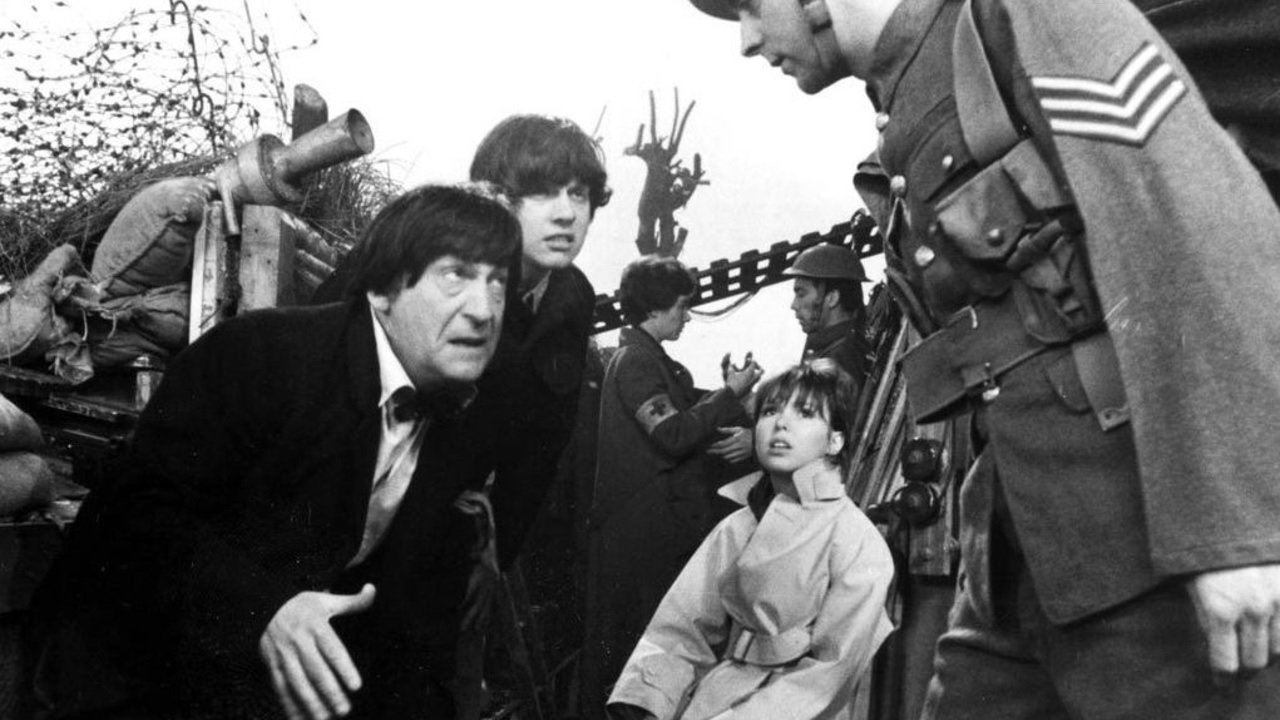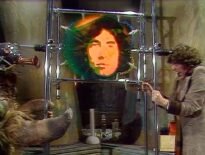Before everything available was released on home media, there was a lot of received wisdom and urban myths about Doctor Who. The Troughton era was perceived as a golden age (in comparison to the clunky Hartnell days) but all the best stories were in Season 5. And – worse than that – the very best ones had been junked.
All that was left were the dregs of the Kroton-end of Season 6, not the classic monster era with lumbering Yetis, creepy Cybermen, and icky seaweed. The War Games was renowned to be a drawn-out desperate attempt to fill a 10-episode void. The final episode reveal of the Time Lords was barely worth the drudge of the previous nine. Worst of all. No monsters. Yes, none.
For me, all this nonsense was blown away on Thursday 1st February 1990 (I was age 16). Back home from school via WHSmith to pick up the clunky double VHS (two tapes in two cases sellotaped together), I inserted the cassette and started to watch… Just over two hours later, my brother and I (a Troughton fan) had devoured the first five episodes. By then, my Dad was home and wanted to watch the news, then the Commonweath Games highlights.
We were incensed. We’d just seen Jamie shot by security guards. How was he going to survive? I mean, we knew he would but it was gripping stuff. The best we could hope was that my Dad would go to bed early and we could watch the rest that night. But he always stayed up until Question Time finished at 11pm. And we had school the next day.

So, we polished the remaining episodes off on Friday. A trip of a lifetime: all the way to the Time Lord’s home planet, then sentenced to be exiled back to earth. The trial only took a few minutes (stitch that, Doctor Six). As Doctor Who epic stories go, it’s far more cohesive, consistent, and thrill-a-minute than The Trial of a Time Lord or Flux. Or the proto-epics like the Key to Time season, Black Guardian trilogy, or Frontier in Space/Planet of the Daleks. (It’s hard to compare to The Daleks’ Master Plan because so much of that is missing.)
It proves there is nothing wrong with being long; you just have to do it right. And The War Games keeps up the momentum with brilliant reveals such as when Smythe pulls back the portrait door to show this isn’t just a trip to earth’s history, when soldiers from other times appear, when the TARDIS crew cross over to a different war zone, when the War Chief is revealed to be one of the Doctor’s own race… It all culminates in the epic reveal (after six mysterious years) of the Doctor’s own home planet.
The cliffhangers are excellent, from the first episode with the Doctor seemingly shot by firing squad, through the Roman chariot charging on our heroes, a brainwashed Carstairs about to shoot Zoe, the TARDIS crew soon to be crushed inside the SIDRAT capsule… They keep up the momentum like those Flash Gordon chapter movies from the ’40s and ’50s.
And the characters from the squabbling War Chief and Security Chief, to the epic cast of soldiers on both sides are all well drawn out and watchable. Particularly the delightful pairing of Leitenant Carstairs and Lady Jennifer, who hark back to Ian and Barbara: they are best companions we never had (or didn’t have for long enough).
Necessity, graft, and inspiration drew out from two of Doctor Who’s finest writers, Terrance Dicks and Malcolm Hulke, arguably the best end-of-Doctor story there ever was.
And it’s not just a romp. The title’s a giveaway. It’s about evil men causing death and destruction. About brainwashed soldiers fighting for a cause they don’t fully understand. And about heroic resistance fighters risking their lives to reveal the truth, while striving for justice and freedom. It’s about as inspiring a story as we could hope for right now.



